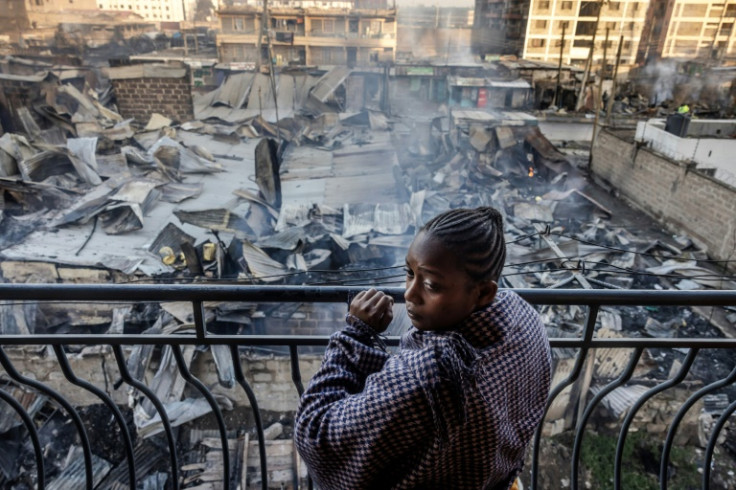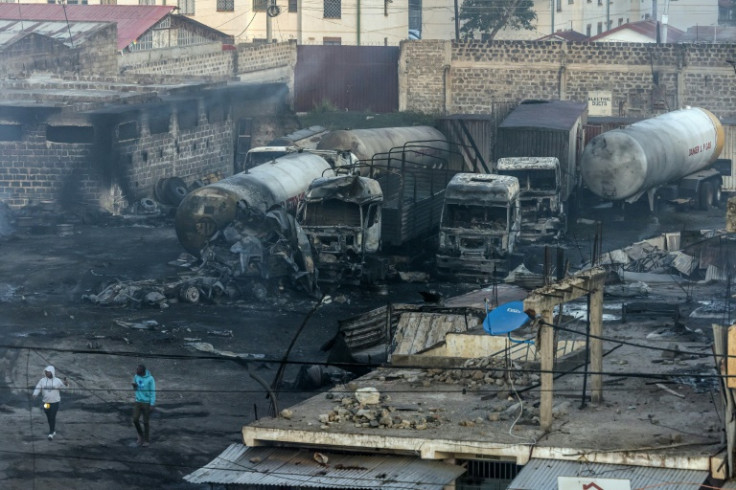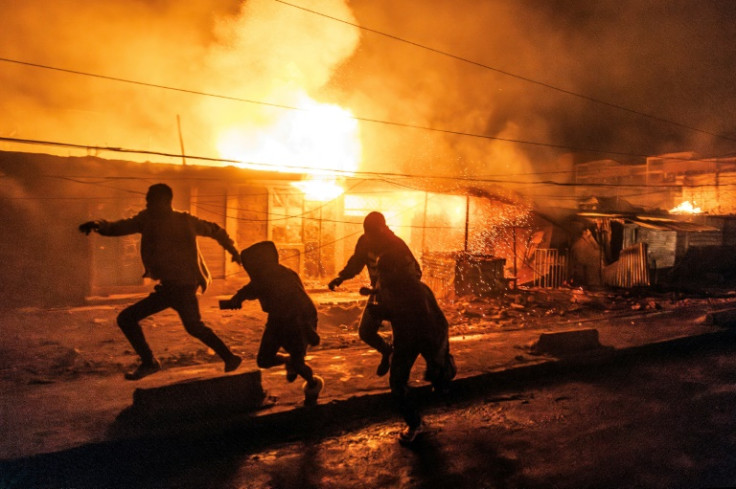
The deadly gas explosion that engulfed a Nairobi estate was a disaster waiting to happen, shaken residents told AFP on Friday as they raged against the government.
Nearly 300 people were rushed to hospital and at least three killed when a truck packed with gas cylinders exploded just before midnight on Thursday, turning the sky orange and setting fire to nearby homes and parked cars.
Plumber Charles Maingi was relaxing at home when he suddenly heard a loud blast.
"I rushed out to check and that is when I saw a huge fireball," he told AFP.
"There was heat everywhere and we started running away because the fire was coming in our direction," he said, his neck bandaged with visible burns along his ears and head.
The force of the explosion sent vehicle parts flying as terrified people fled for safety, screaming for their lives.
Sylvanus Abwayo was thrown off a motorcycle by the blast and scrambled to his feet as the flames drew nearer.
"I just don't know how I managed to escape because we were too close to this place that was covered in smoke and fire," he said.
After the firefighters finally managed to contain the blaze, some nine hours after it erupted, the mood in the Mradi estate was heavy with shock, sadness and anger.
Citizens told AFP they had long foreseen the tragedy, describing how the residential neighbourhood in the Embakasi area of southeastern Nairobi had allegedly also been home to gas companies, with trucks arriving every day.
"We don't even know what business goes on in these godowns because some of them have no names. All we see are vehicles going in and out including the gas trucks," said Eliud Mulandi, a carpenter.
Other residents echoed his concerns.
"Every day there are huge trucks with gas parked outside and we live here," said James Bor, a 47-year-old motorcycle taxi driver.
"Let the government move these gas plants... We will demonstrate and block these roads until it happens," he warned.
Kenya's Energy and Petroleum Regulatory Authority (EPRA) said Friday it had denied permission three times last year for the construction of a liquefied petroleum gas storage and filling plant at the site of the explosion.
"All applications were rejected as they did not meet the set criteria for an LPG storage and filling plant in that area," EPRA said in a statement.
"The main reason for the rejection was failure of the designs to meet the safety distances stipulated," it said, noting "the high population density around the proposed site".
But residents alleged that the gas businesses in the neighbourhood had operated with impunity and little regard for citizens' safety.
"Why do we have gas plants in the middle of estates? This is a residential area and that is a gas plant right there. And it is not one, there are several," Magdalene Kerubo, 34, told AFP.
"Our government is so irresponsible," she said, fuming.
"The government always waits to react... Now you see there are police and government people all over here, yet they knew all along about this problem of gas plants in estates," the 58-year-old told AFP.
"We need the gas plants to be moved from residential areas," she said.
"Let them move because this is a disaster in waiting."










